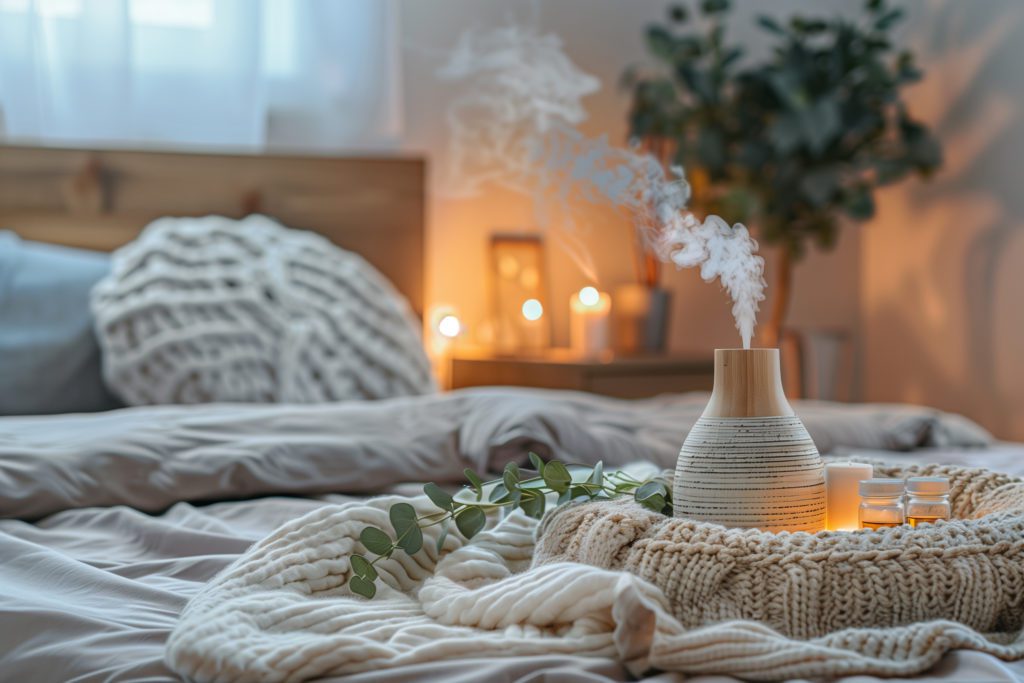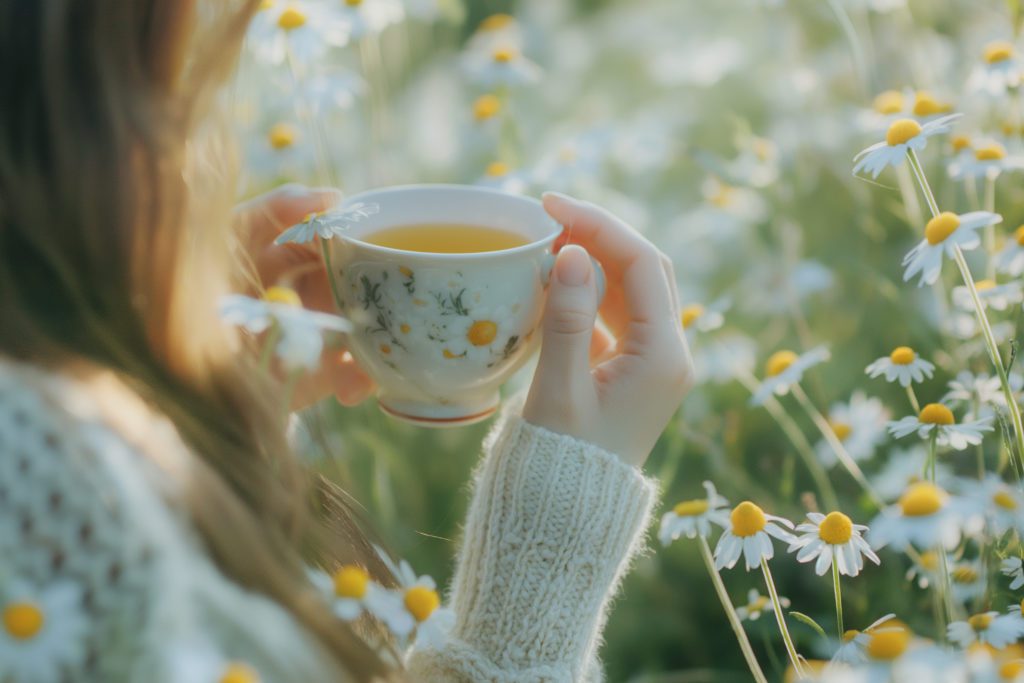
How Plants Improve Air Quality and Contribute to a Restful Night
Plants can help improve your house’s air quality, allowing you to breathe easier and sleep more restfully. Some plants also have a sleepiness-inducing aroma.

Have you stopped to consider the air quality of your house? We typically assume that it’s cleaner than the air we breathe outside, but in many cases, that’s not the case. Even more, breathing in this lower-quality air all day and night may be affecting your sleep.
Plants—our heroes cloaked in green—can step in here to cleanse the air and, with some varieties, offer a scent that can lull you to sleep. There are things to keep in mind, though, if you want to use plants to improve your air quality and sleep better, such as the best types to have and how many plants your space needs.
Phytoremediation: The Cleansing Power of Plants
The benefits of plants in regard to air purification revolve around their ability to remove common volatile organic compounds (VOCs), such as benzene, formaldehyde, trichloroethylene (TCE), and toluene, all of which can be found in stuff you likely have around your house.
Breathing in these VOCs can be dangerous for your health, causing health problems such as:
- Dizziness
- Headaches
- Nausea
- Respiratory diseases
- Liver damage
- Shortness of breath
- Memory loss
- Fatigue
Of note, these symptoms, especially the more severe ones, typically occur with significant or long-term exposure.
However, with us spending more time indoors, and with our houses and indoor spaces becoming increasingly sealed off from outdoor air, preventing any natural venting of fresh air, we may be exposed to these dangerous compounds at a higher amount than in the past.
Enter plants, whose leaves, roots, and soil can help purify the air. Even more fascinating, certain plants are more effective at clearing out specific VOCs, showing the importance of having variety in the flora in your house.
Based on testing completed by NASA to determine how well plants cleanse the air in space stations, they found that flowering plants were most effective in removing benzene; bamboo palms, snake plants, golden pothos, and spider plants were some of the most effective at removing formaldehyde; and the rest of the plants they tested (except for the Chinese evergreen) were able to remove at least one of the tested chemicals from the air.
A Long-Term Study
One of the greatest limitations of the NASA study is that it was completed in a vacuum-sealed space in order to mimic the conditions seen in space. With our houses seeing airflow, even if minimally, these same conditions cannot be seen in a typical house, which causes skewed results.
Essentially, you may need more plants to see those same results, and even then, the air may never become as clean as seen in the NASA study. Still, with the help of plants, it will be undeniably cleaner.
To better observe the power of indoor plants in more standard conditions, the government of India conducted a 15-year study to see the benefits of certain plant species on indoor air quality.
The Paharpur Business Centre and Software Technology Incubator Park was filled with more than 1,200 plants of the varieties areca palm, money plant, and Mother-in-Law’s tongue. The 50,000-square-foot and 20-year-old building had space for 300 workers, and the results of the study were fascinating.
The study found that this workplace had the best indoor air quality of all buildings in the city, and those working at this facility had:
- 34% reduction in respiratory conditions
- 52% fewer cases of eye irritation
- 24% less headaches
- 20% fewer cases of hypertension
Ultimately, this study showcased the impact that indoor plants can have on your health, but if there’s one thing to make clear, it’s that a single plant is not going to completely cleanse the air in your place—the space is too big, and one plant can only do so much.
Ways That Plants Improve Your Sleep
When it comes to having a better night of sleep, the key may lie in increasing the greenery in your home. Let’s explore some of the benefits offered by plants.
Plants Purify the Air
As we know, plants have the potential to cleanse the air, helping to remove harmful compounds that may otherwise affect our health and wellness. Do you know how it’s harder to fall asleep if your head aches, you’re nauseous, or you have a hard time breathing smoothly? In some cases, these symptoms may be caused by the state of your indoor air quality, and plants can help.
Having enough plants is key when cleansing the air is the goal, so ensure you’re loading up on greenery to see the greatest improvement in your air quality. Before you know it, you’ll be sleeping easier because you’ll no longer have ailments keeping you awake or rousing you from sleep due to discomfort.
Floral Aromas Lull You to Sleep
Certain scents can promote sleepiness, and getting them directly from the source can help you to sleep easier. Lavender is the scent most commonly associated with sleep, and studies have shown that lavender improves slow-wave sleep, also known as deep sleep, helping you see a better night of sleep.
Jasmine is another great scent for sleeping, with a study finding that those sleeping in a jasmine-scented room slept more peacefully and moved less during the night.
Plants Increase Oxygen Levels
Plants are well known for their energy processes requiring the opposite of what humans do—where we need oxygen and let out carbon dioxide, plants need carbon dioxide and release oxygen. It’s a symbiotic relationship benefitting both parties.
Plants Decrease Stress Levels
While unrelated to the impact of the plant on air quality, gardening is well-known for its ability to decrease stress levels, and keeping plants indoors can offer this same benefit when you spend time caring for them.
Greener Space, Better Sleep
If you struggle to sleep at night, adding more plants to your space may be the change you need. With the ability to cleanse the air (improving your health), provide sleepiness-promoting scents, and boost oxygen levels, plants can help you fall and stay asleep easier while also promoting a more restful night of sleep.
To experience the benefits of plants for yourself, head to your local plant nursery and load your cart up—remember, different plants offer different benefits, so keep things varied, and if you’re new to the indoor plant game, look for low maintenance plants.

Written by
Jessica G
Medical writer freelancer who has written hundreds of articles on varying topics. Masters of Engineering degree in Biomedical Engineering.
Download Pillow
Get help
Press & News
Legal
Connect
X (Twitter)
Company
Copyright © Neybox Digital Ltd.


